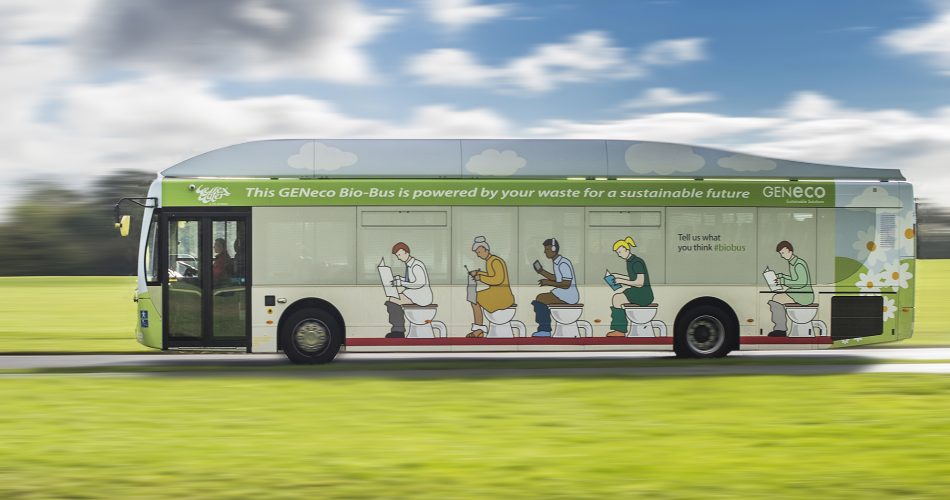The first of this kind was introduced in 2014
The first bus powered by human poop was introduced in the United Kingdom. It’s a 40-seater ‘Bio-Bus’ that runs on biomethane gas produced by sewage and food waste treatment at a processing plant.
This bus has been operating since 2014, and a single tank of gas made from the average annual waste of just five people can get the vehicle to travel 190 miles (305 km).
This environmentally friendly vehicle improves air quality and demonstrates that human feces has value. The first passengers traveled on the route from Bristol Airport to Bath, Somerset, a distance of roughly 20 miles (32 km), on its maiden journey.
The gas is produced by energy company GENeco at a Wessex Water sewerage plant. “Gas-powered vehicles have an important role to play in improving air quality in UK cities”, said Mohammed Saddiq, director of GENeco.
“But the Bio-Bus goes further than that and is powered by people living in the local area, including quite possibly those on the bus itself”.
A busload of people’s annual garbage would supply enough electricity for a round trip from Land’s End to John O’Groats while emitting fewer pollutants than a diesel engine.
Charlotte Morton, chief executive of eco-friendly organization Anaerobic Digestion and Bioresources Association, said: “The bus also clearly shows that human poo and our waste food are valuable resources”.
“Food which is unsuitable for human consumption should be separately collected and recycled through anaerobic digestion into green gas and biofertilizers, not wasted in landfill sites or incinerators”.
GENeco was also the first company to use the national grid to transport gas generated from human waste to 8,300 residences.
Every year, the Avonmouth waste treatment plant in Bristol handles 75 million cubic meters of sewage waste and 35,000 tonnes of food waste.
The plant can create 17 million tonnes of biomethane per year via anaerobic digestion, which is the process of employing bacteria to break down substances in the absence of oxygen.
The first passengers travelled on the route from Bristol Airport to Bath, Somerset. Charlotte Morton of Anaerobic Digestion and Bioresources Association, said: “The bus clearly shows that human poo and our waste food are valuable resources”.
The Bio bus, on the other hand, emits 20–30% less carbon dioxide, and 80% fewer nitrogen oxides. In addition, it is low in particulates when compared to diesel engines commonly used to power buses. The bus can travel 190 miles (305 kilometers) on a single tank of gas; however, the bus must refuel at the Bristol Sewage Treatment Works, which is seven miles from the city center, requiring the bus to make a large journey to refuel, making it less cost-effective to operate.
Anyway, buses are not the only ones they tried to power by poop, some applied the concepet to a car but this kind of fuel could be the next energy for planes.
Source dailymail.co.uk
